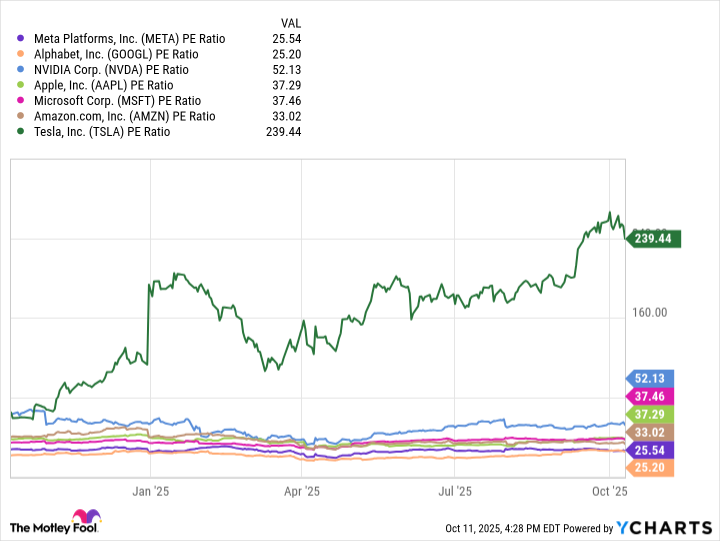Meta Platforms (META +1.46%) is likely to deliver one of the most closely watched quarterly reports of the upcoming earnings season. With the company spending heavily to transition the social media giant into a more artificial intelligence (AI)-focused operation, investors will have all the more reason to focus on the "Magnificent Seven" stock.
Investors might recall the 20% gain in the stock following the release of the February 2024 numbers. Conversely, they may also remember that the stock lost one-fourth of its value following its quarterly report in October 2022.
Considering that history, it probably pays for prospective shareholders to ponder whether they should buy Meta stock before the Oct. 29 earnings report or stand pat.

Image source: Getty Images.
Understanding Meta Platforms
As most investors know, Meta is the parent company of Facebook, Instagram, Threads, WhatsApp, and other social media sites that have attracted a massive user base. Nearly 3.5 billion users log on to at least one Meta-owned site daily, which amounts to around 42% of the world's population.
Although it grew by 6% yearly, this user base is likely beginning to reach a saturation point. That did not stop its advertising revenue from growing by 19% year over year in the first six months of 2025.
Nonetheless, that rate of increase is likely to slow down over time. To remedy that, the company has pivoted aggressively into artificial intelligence (AI). It hopes to leverage its massive amount of data to train AI models with unique personal data that competitors cannot access. To this end, it pledged to spend between $66 billion and $72 billion in capital expenditures (capex) in 2025 alone.
Effects on Meta's stock
However, the company's financials indicate it is best to judge Meta by its legacy businesses, at least for now.
In the first half of 2025, overall revenue of $90 billion increased by 19%, compared to the same period in 2024. One might notice that it mirrors the aforementioned advertising growth in the same time frame, which is because advertising still makes up 98% of the company's revenue.
Meta's AI, along with products such as the Meta Quest VR goggles, belongs to its Reality Labs segment. Nonetheless, Reality Labs generated only $782 million in revenue in the first two quarters of 2025, falling by over 1% over the same time frame. That represents less than 0.9% of the company's total revenue during the period, indicating it will take time to become a significant revenue driver despite the massive capex spending.
Still, investors should like what they see from the current financials. The company kept cost and expense growth in check over that period. Consequently, the net income of $35 billion in the first half of 2025 rose by 36% from year-ago levels.

NASDAQ: META
Key Data Points
During that time, Meta's slightly above-average stock returns helped give it a P/E ratio of 26. That means that of the Magnificent Seven stocks, only Alphabet's P/E ratio of 25 is lower than Meta's, a low level considering the significant profit increase for the company.
Data by YCharts.
Still, Reality Labs is likely to claim larger percentages of Meta's total revenue over time. That means that as AI becomes more prominent, its transformation is likely to alter Meta's value proposition, taking the stock much higher.
Should I buy Meta Platforms stock before Oct. 29?
Given the state of Meta Platforms, investors should win with the stock long term and feel safe deploying some of their capital before Oct. 29.
Indeed, anything can happen after earnings, meaning investors should probably allocate no more than half of their budget for buying Meta stock before the earnings date. Still, it is also plausible that Meta stock will surge following the announcement, and that possibility is a good reason to add some shares now.
Ultimately, whatever decision investors make, Meta is a reasonably priced stock with a bright, long-term future in AI. That leaves investors with a strong case for buying Meta stock to benefit from the ad business now and AI later.






